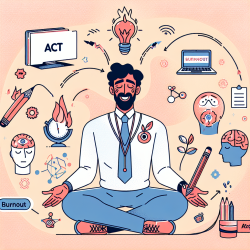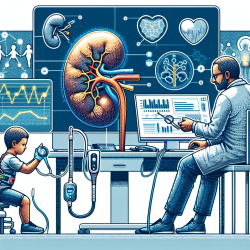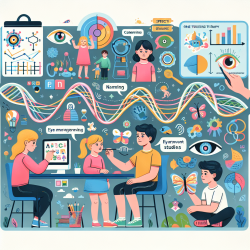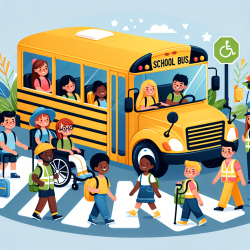As speech-language pathologists dedicated to improving outcomes for children, it is crucial to leverage data-driven insights from research to enhance our practice. A recent study titled "Baseline Stroke Literacy of Young Children Based on 'FAST 112 Heroes' Program" provides valuable information that can help practitioners like us improve stroke literacy among young children. This blog post will discuss the findings of the study and how they can be implemented in practice.
Understanding the Study
The study aimed to evaluate the baseline knowledge of stroke symptoms and appropriate responses among preschool children before participating in the "FAST 112 Heroes" educational program. The program focuses on teaching children to recognize stroke symptoms using the FAST acronym (Face, Arms, Speech, Time) and to take appropriate action, such as calling emergency services.
Key Findings
- More than half of the children could recognize symptoms like face drooping (52.8%) and speech disturbances (74.8%).
- Only 10.6% of the children knew the appropriate course of action in case of a stroke.
- Gender and age did not significantly affect the children's responses.
Implementing the Findings
Based on these findings, here are some strategies that practitioners can use to improve stroke literacy among young children:
Interactive Learning
Utilize interactive and age-appropriate materials, such as animated pictures and verbal explanations, to teach children about stroke symptoms and emergency responses. This approach was effective in the study and can be replicated in different educational settings.
Parental Involvement
Engage parents in the educational process. Children can act as conduits to transfer stroke literacy to their family members, thereby extending the benefits of the program beyond the classroom.
Reinforcement
Repeated exposure to stroke education can help reinforce knowledge. Integrate stroke literacy into the regular curriculum and conduct periodic refresher sessions to ensure the information is retained.
Community Outreach
Collaborate with local health agencies and schools to conduct community-wide stroke awareness programs. This can help create a culture of preparedness and prompt action in case of a stroke.
Encouraging Further Research
While the study provides valuable insights, there is still much to learn about stroke literacy in young children. Future research could explore the long-term retention of stroke knowledge and the effectiveness of different educational interventions. Additionally, studies could investigate how children react behaviorally and psychologically when a family member suffers a stroke and their role in the caregiving process.
To read the original research paper, please follow this link: Baseline Stroke Literacy of Young Children Based on “FAST 112 Heroes” Program










